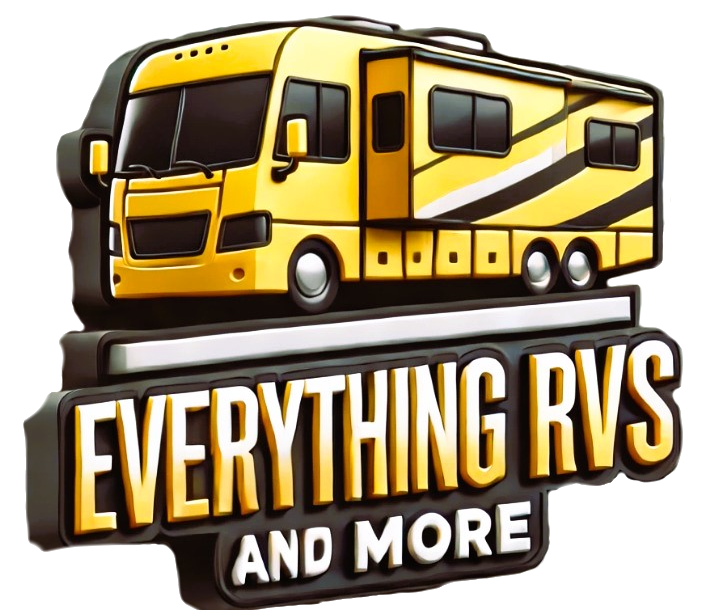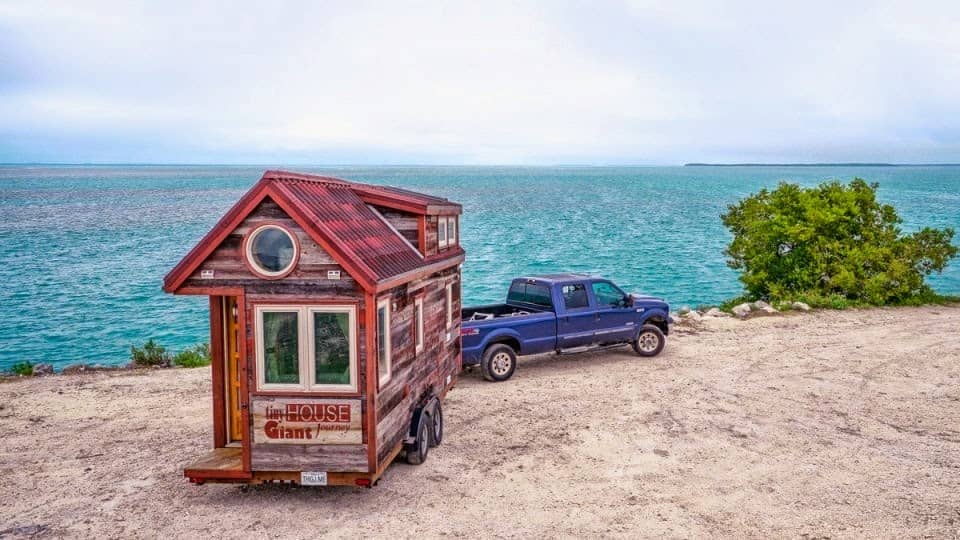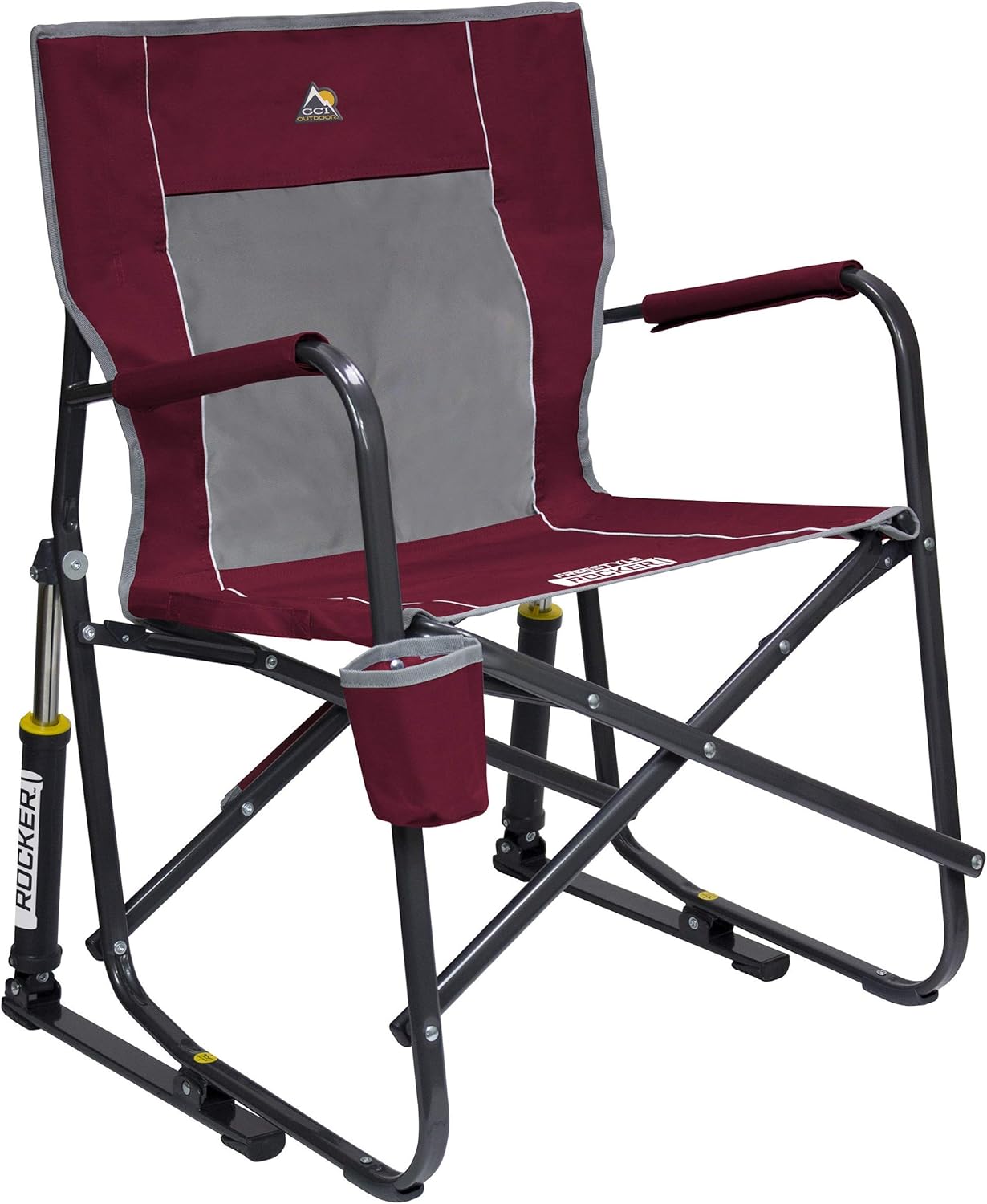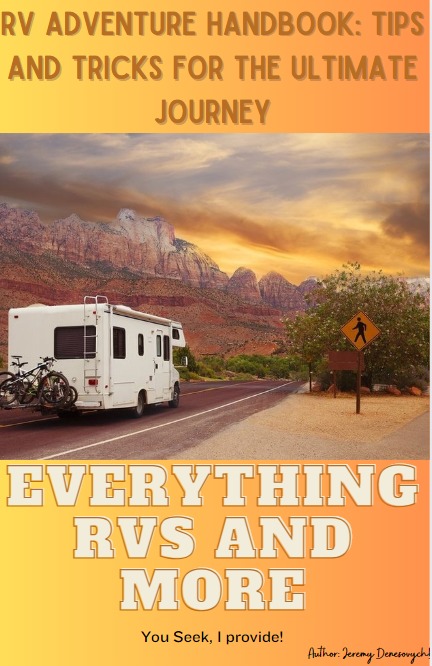Affiliate Disclosure: I earn commissions if you shop through the links below at no additional cost to you.
Last Updated on January 23, 2024 by Jeremy
In a world where the desire for freedom and self-sufficiency has never been more prevalent, off grid RV living offers an enticing alternative to traditional lifestyles.
This comprehensive guide is your gateway to a self-sufficient, sustainable, and adventurous way of traveling.
We’ll delve into the intricacies of living off the grid in your RV, offering expert advice and insights to help you embark on this exciting journey.

Introduction to Off Grid RV Living – Embracing the Off-Grid Lifestyle
Off grid RV living isn’t just a mode of travel; it’s a lifestyle. It’s about breaking free from the constraints of the urban world, immersing yourself in nature, and becoming self-reliant.
Whether you’re an experienced RVer or just starting, this guide will equip you with the knowledge to thrive in your journey.
Selecting the Right RV for Off-Grid Living – The Perfect Off-Grid Companion
Choosing the right RV is a pivotal decision for your off-grid living adventure.
It’s not just about the vehicle; it’s about your home on wheels. The choice you make can significantly impact your comfort, sustainability, and self-sufficiency.

A Continuation of An Article I Wrote: “Things to Know Before Buying a Travel Trailer”
Before we dive into the specifics of selecting an RV for off-grid living, it’s crucial to build upon the knowledge you’ve already gained from our article, “Things to Know Before Buying a Travel Trailer”.
In that comprehensive guide, we explored the fundamentals of choosing a travel trailer, including factors like size, weight, towing capacity, and floor plans.
Understanding these basics will provide you with a solid foundation as we expand into the realm of off-grid living.
Now, let’s get into the nitty-gritty details of selecting the perfect off-grid RV:
Types of Off-Grid RVs
Off grid RV living isn’t limited to a single type of recreational vehicle. You have a variety of options to consider, each with its own unique advantages.
Here are a few types to explore:
- – Tiny Homes on Wheels: Tiny homes offer a compact yet functional living space. They are designed with off-grid living in mind, often featuring solar power and eco-friendly systems. Their small size allows for easy maneuverability in remote areas.
Here’s an option directly from our online store:
- – Boondocking-Friendly Trailers: Some travel trailers and motorhomes are specially designed for boondocking, which means camping off-grid without external hookups. These RVs come equipped with features like larger freshwater tanks, solar-ready systems, and rugged construction.
One of the most critical decisions when choosing an RV for off-grid living is its size. Consider the following factors:
- – Length: Longer RVs provide more living space but can be challenging to maneuver in tight spaces or on rugged roads. Shorter RVs are more agile but may have limited interior space.
- – Weight: Your tow vehicle’s towing capacity determines the weight of the RV you can choose. Ensure your vehicle can handle the weight of the RV, especially if you’re considering a travel trailer.
- – Slide-Outs: Slide-out rooms can expand the interior living space when parked, but they add weight and complexity to the RV.
To truly embrace off-grid living, you’ll need a reliable power source. Our previous article on solar panels and generators covered this aspect, but it’s worth reiterating.
- Solar Panels: Solar power is a popular choice for off-grid RVs. Solar panels capture the sun’s energy and convert it into electricity. They’re environmentally friendly and provide a consistent power source in sunny conditions.
- Generators: Generators are handy for recharging your batteries or running appliances when sunlight is limited. Choose a generator with the appropriate size for your RV’s power needs.
Storage space is vital for off-grid living, as you’ll need to carry supplies for longer durations.
Your RV should have ample storage for water, food, gear, and personal items.
Be sure to assess the interior and exterior storage options before making a decision.
In summary, selecting the right RV for off-grid living is a significant decision that requires careful consideration.
The choice between tiny homes on wheels, boondocking-friendly trailers, and the size and power sources of your RV will impact your self-sufficiency and comfort on the road.
Now that you’ve gained a deeper understanding of this crucial aspect of off-grid living, let’s continue to explore the other facets of this lifestyle in the subsequent sections of our guide.
Power and Energy Sources – Powering Your Adventures
When it comes to off-grid RV living, having a reliable source of power is akin to having a lifeline.
Without it, you risk being left in the dark, quite literally. In this section, we will explore the various power and energy sources that will keep your off-grid journey charged with excitement.
Solar Panels: Capturing the Sun’s Energy
Solar panels are the unsung heroes of off-grid living. Harnessing the sun’s energy, these panels convert sunlight into electricity, providing a clean and renewable source of power.
Here’s what you need to know:
- – Sizing Your Solar System: The size of your solar panel system should match your energy needs. Consider your appliances, lighting, and other power-hungry devices when determining the size of your solar array. There’s a special tool you can use to calculate your solar system size if you read this article here: Living Off the Grid in Canada – Multiple Considerations to Think of 1st!
- – Inverter and Battery Storage: To make the most of your solar energy, you’ll need an inverter to convert DC power to AC power, which your RV uses. Additionally, battery storage is essential to store excess energy for use during cloudy days or at night.
- – Solar Panel Placement: Proper placement of solar panels is vital. They should receive as much direct sunlight as possible. Consider tilt mounts or portable panels to optimize their positioning.
- – Maintenance: Solar panels are low-maintenance, but it’s essential to keep them clean and free of debris for optimal performance.

While solar panels are excellent for harvesting energy during sunny days, off-grid RVers often require a backup power source, and that’s where generators come into play:
- – Selecting the Right Generator: Choose a generator that matches your power requirements. Portable generators are versatile and can be used for various applications, while built-in generators are more convenient but may be specific to your RV model.
- – Fuel Type: Generators can run on different fuel types, such as gasoline, propane, or diesel. Consider the availability of fuel and your preferences when making a choice.
- – Quiet Operation: Look for generators designed for quiet operation to avoid disturbing the peace of the wilderness.
- – Eco-Friendly Options: Some generators are more environmentally friendly than others. Opt for inverter generators, which produce clean power and are fuel-efficient.
If you’re in the hunt for generators, make sure to check out our online store after you read this article!
Energy Conservation: Making the Most of Your ResourcesIn off-grid living, conserving energy is just as crucial as generating it.
Here are some tips to ensure you make the most of your power resources:
- – LED Lighting: Replace traditional incandescent bulbs with energy-efficient LED lighting. LED bulbs consume significantly less power and last longer.

- – Energy-Efficient Appliances: Choose appliances that are designed to be energy-efficient. Look for the Energy Star label on products, which indicates they meet strict energy-saving standards.
- – Limit Appliance Usage: Use appliances thoughtfully and minimize their use during peak energy demand times, especially if you have limited power.
- – Heat and Cooling Management: Manage your heating and cooling systems efficiently. Proper insulation and ventilation can help maintain comfortable temperatures while using less power.
With these insights into power and energy sources for off-grid RV living, you’re well on your way to a self-sufficient and sustainable journey.
Embracing solar panels, generators, and energy conservation practices will keep you powered up even in the remotest corners of the world.
Water Management – Water, the Essence of Life
In the world of off grid RV living, water is an invaluable resource, akin to liquid gold.
It sustains life, supports your daily needs, and ensures your comfort on the road.
In this section, we’ll explore how to manage water effectively, from sourcing to responsible wastewater disposal.
Sourcing Water in the WildThe first challenge of off-grid living is sourcing clean, safe water.
Here’s how to do it:
- – Carrying Sufficient Water: Your RV should have freshwater tanks, but their capacity may be limited. It’s essential to carry enough fresh water for your journey. Consider additional water containers or jerry cans for extra storage.

- – Exploring Natural Sources: When possible, tap into natural water sources such as rivers, lakes, or springs. However, always ensure that you purify the water before consumption to prevent waterborne illnesses.
You can obtain this water using a lifestraw or a similar product. You may want to read this article called: How Does the Lifestraw Work? Your 2023 Comprehensive Guide – Everything Nature and More to learn more.
- – Rainwater Harvesting: Collecting rainwater from your RV’s roof into dedicated tanks can provide a renewable source of freshwater. Install a filtration system to ensure the water is safe for drinking and cooking.
- – Water Filtration Systems: Investing in a high-quality water filtration system is essential. Look for filters that remove bacteria, viruses, and other contaminants. This ensures you have a safe supply of water from various sources.
In off-grid living, water conservation is paramount. You need to make every drop count.
Here are some conservation tips:
- – Low-Flow Fixtures: Install low-flow faucets and showerheads to reduce water consumption without sacrificing comfort.
- – Shorter Showers: Limit your shower time and consider using a portable camp shower to control water usage.
- – Dishwashing Efficiency: Use a dishpan or basin to wash dishes, and opt for biodegradable soap to minimize environmental impact.
- – Reuse Water: Collect graywater (wastewater from sinks and showers) for non-potable uses, such as flushing the toilet or watering plants.
Ensuring the safety of your water supply is non-negotiable. To purify water effectively:
- – Boiling: Boiling water is a straightforward method to kill bacteria and pathogens. This is especially useful for natural water sources.

- – Water Filters: As mentioned earlier, invest in a quality water filter that can remove contaminants. This is an ongoing defense against unsafe water.
- – UV Water Purifiers/Ionizers: Portable UV purifiers can effectively disinfect water, making it safe for drinking. These devices are compact and ideal for off-grid use. The Ionizers on the other hand use a different method for making drinking water taste better.
Consider getting a water ionizer from Water for Life, USA. You can read more about what they offer and how they work here: Do water Ionizers work? – 6 Perfect Categories to help YOU decide whether It is Beneficial for Your RV!
- – Chemical Treatment: Water purification tablets or drops can be a backup method for disinfecting water when other options are limited.
Responsible wastewater disposal is crucial to preserving the environment and ensuring a positive off-grid experience.
Follow these guidelines:
- – Dump Stations: Locate authorized dump stations or RV parks where you can safely dispose of your blackwater (sewage) and graywater.
There’s an App I recommend that has this feature called AllStays. Not only does it have recommendations on where dump stations are, it has the locations of truck stops, campgrounds, and other features.
Check it out by clicking below:
- – Composting Toilets: Consider installing a composting toilet in your RV. They turn waste into a dry, odorless material that can be disposed of more responsibly.
- – Biodegradable Soaps: Use biodegradable soaps for showering and dishwashing to minimize the environmental impact of graywater.
- – Respect Local Regulations: Be aware of local regulations regarding wastewater disposal, especially in pristine wilderness areas. Always abide by these rules.
Effective water management ensures your self-sufficiency and minimizes your ecological footprint.
In the wild, water is both your lifeline and your connection to the natural world.
By sourcing water responsibly, conserving it diligently, purifying it effectively, and disposing of wastewater thoughtfully, you can fully embrace the essence of off-grid RV living.
Off-Grid Cooking and Food Storage – Culinary Creativity on the Road

Off grid RV living doesn’t mean sacrificing delicious, home-cooked meals.
With the right equipment and strategies, you can become a master chef even in the heart of the wilderness.
In this section, we’ll delve into off-grid cooking techniques, food storage solutions, and tips for culinary creativity on the road.
Off-Grid Cooking MethodsOff-grid cooking requires adaptability and resourcefulness. Here are some methods to prepare hearty, flavorful meals:
- – Propane Stoves: Portable propane stoves are a popular choice for off-grid cooking. They provide a consistent and easily adjustable flame for precise cooking.
- – Open Fires: Cooking over an open fire is a classic and rustic option. It connects you with the great outdoors and infuses your dishes with a unique smoky flavor.
- – Campfires and Dutch Ovens: Dutch ovens are versatile and perfect for one-pot meals. They can be used directly over a campfire, on a propane stove, or in a dedicated Dutch oven stand.
- – Portable Grills: Compact grills are ideal for outdoor barbecues. They allow you to grill your favorite foods even in remote locations.
- – Wood Burning Stoves: Wood Stoves offer another perfect solution for off-grid cooking, especially when the design is to house cast iron cooking equipment on top of them for the ultimate meals.
Effective food storage ensures you have access to fresh and safe ingredients throughout your off-grid journey.
Here’s how to keep your supplies organized:
- – RV Refrigerator: Your RV may come equipped with a refrigerator. It’s essential for keeping perishables fresh, and it operates on both propane and electricity.
- – Coolers and Ice Packs: Coolers can extend your fresh food storage. Use ice packs or blocks instead of loose ice to minimize water accumulation. You can always utilize the winter snow should you lack ice packs.
- – Non-Perishables: Stock up on non-perishable items like canned goods, dried fruits, and pasta. These items have a longer shelf life and can be used in various recipes.
Another note would be to stock up on survival food buckets. Not only do they have the food portions neatly packed inside a bucket, the buckets themselves can double back as water containers. It’s a win-win.
Check out these food storage buckets from Survival Frog:
- – Dry Storage Containers: Invest in airtight containers to keep staples like rice, flour, and spices dry and fresh.
Off-grid cooking can be an adventure in itself. Here are some tips to elevate your culinary experience:
- – Meal Planning: Plan your meals ahead of time, considering the ingredients and cooking methods available. This will help you make efficient use of your resources.
- – One-Pot Wonders: Simplify your cooking process with one-pot meals. Soups, stews, and casseroles are delicious and require minimal cleanup.
- Camping Recipes: Explore camping cookbooks and online resources for inspiration. There are plenty of creative recipes designed for off-grid cooking. You can even check out this article for easy camping recipes: Roaming and Savoring: Easy RV Camping Recipes for Delicious Road Trip Meals
- Preparation and Cleanup: Set up a dedicated outdoor cooking area and bring essential utensils. Keep biodegradable dish soap and eco-friendly cleaning supplies for quick and easy cleanup.
- Safety First: Be cautious when cooking over open flames or campfires. Keep a fire extinguisher and first aid kit on hand.
Embracing off-grid cooking and effective food storage adds a delightful dimension to your RV journey.
You’ll savor not just the beauty of the wilderness but also the flavors of your culinary creations.
Stay with us as we continue to explore other essential aspects of off-grid RV living, including safety measures and navigation in remote areas.

Safety and Survival Essentials – Staying Safe in the Wild
In the vast and unpredictable wilderness, safety is your top priority.
Whether you’re off-grid for a weekend or an extended journey, being prepared for any situation is crucial.
In this section, we’ll delve into the essential safety equipment, first aid kits, and communication devices that will provide peace of mind while exploring off the beaten path.
Additionally, we’ll share valuable survival skills and tips to handle emergencies.
Before you read on however, keep in mind this article that shares much of the equipment you’ll be recognizing ahead: Camping, Hiking, Hunting, and Survival Gear: Your Ultimate Guide to Outdoor Essentials.
Essential Safety EquipmentSafety begins with preparedness. Here are the essential items you should have in your RV:
- – Fire Extinguisher: A portable fire extinguisher is a must to handle small fires quickly and prevent them from spreading.
- – Smoke and Carbon Monoxide Alarms: Install alarms to detect smoke and harmful gases in your RV. Check them regularly to ensure they’re functioning correctly.
- – Emergency Lighting: Keep a stash of flashlights, headlamps, and lanterns with spare batteries. They’re crucial in power outages or nighttime emergencies.
- – Basic Tool Kit: A toolkit with essential tools like wrenches, screwdrivers, and pliers can help with minor RV repairs or adjustments.
- – Jumper Cables: In case your RV’s battery needs a boost, having jumper cables on hand can save the day.
- – Reflective Vest and Roadside Triangles: These items improve visibility during roadside emergencies or repairs.
A well-stocked first aid kit is essential for addressing injuries and illnesses while on the road. Here’s what it should contain:
- – Adhesive Bandages: Various sizes of bandages for minor cuts and scrapes.
- – Sterile Gauze and Dressings: Used for wound care and to stop bleeding.
- – Antiseptic Wipes and Ointments: To clean wounds and prevent infection.
- – Pain Relievers: Over-the-counter pain medication or natural remedy relievers.
- – Tweezers and Scissors: For removing splinters, cutting tape, or trimming gauze.
- – Thermometer: To monitor body temperature.
- – CPR Face Shield: For performing CPR safely.
- – Prescription Medications: If any travelers have specific medical needs.
- – Emergency Contact Information: A list of emergency contacts, including family, doctors, and medical history.

In remote areas, staying connected is vital. Here are devices to ensure communication:
-
- – Cell Phone: Have a reliable cell phone with a charger and consider a solar charger for backup power.
- – Two-Way Radios: A set of two-way radios can be essential for communication between members of your group, especially in areas with poor cell reception.
 Cobra microTALK CX112 Two Way Radio 16 Mile Range (2 Pack)
Cobra microTALK CX112 Two Way Radio 16 Mile Range (2 Pack)
- – Satellite Phone: If you plan to venture into extremely remote regions, a satellite phone provides a lifeline in places without cell coverage.
Being prepared also means having the knowledge to handle emergencies. Here are some survival skills and tips:
- – Fire-Making: Learn how to start a fire using various methods, such as fire starters, flint and steel, or natural materials.
- – Navigation: Brush up on map reading and compass skills to find your way if you get lost.
- – Water Procurement: Know how to find and purify water from natural sources.
- – Shelter Building: Be prepared to construct a shelter in case you can’t return to your RV.
- – Food Foraging: Understand how to identify and collect edible plants and forage for food.
- – Wildlife Awareness: Learn about the wildlife in the areas you’ll visit and how to coexist safely with them.
Safety and survival preparedness ensure that your off-grid RV journey remains enjoyable and worry-free.
Having the right equipment, first aid supplies, communication devices, and survival skills can make all the difference in an emergency.
When it comes to off-grid safety and survival, one name stands out: Survival Frog.
Their extensive range of survival gear, first aid kits, and communication devices are essential companions for off-grid RV living.
From high-quality two-way radios to well-equipped first aid kits, Survival Frog ensures you have the tools to handle any situation.
Their commitment to quality and reliability makes them a trusted partner on your self-sufficient journey.
Visit their website today to explore their wide selection of survival essentials and gear that can provide peace of mind on the road.
Navigation and Destinations – The Road Less Traveled
Navigating remote and off-grid areas is an adventure in itself. While these places offer unparalleled natural beauty, they can also present challenges when it comes to finding your way.
In this section, we’ll guide you through the art of navigating off-grid terrain and recommend destinations that cater to off-grid RV enthusiasts.

Traveling off the beaten path requires a unique set of navigation skills. Here’s how to ensure you stay on course:
- – Paper Maps and Compass: Always carry detailed paper maps of the areas you plan to visit. A compass is an essential tool for orienting yourself.
- – GPS Devices: Invest in a reliable GPS device specifically designed for off-road navigation. These devices often have topographical maps and the ability to mark waypoints.
- – Mobile Apps: Download navigation apps that work offline, as cell signal can be spotty in remote areas. Apps like Gaia GPS and AllTrails are excellent options, like I mentioned above.
- – Trail Markers and Landmarks: Learn to identify trail markers and natural landmarks to stay on the right path.
- – Local Knowledge: If possible, gather information from locals or fellow RV enthusiasts who have explored the area.
Finding the perfect off-grid camping spot is an art.

Here’s how to discover the hidden gems:
- – Boondocking Sites: Look for Bureau of Land Management (BLM) or National Forest Service lands that permit boondocking. These areas often have dispersed camping spots where you can enjoy solitude and natural beauty.
- – Campground Directories: Explore campground directories that focus on off-grid and primitive camping. Websites and apps like Campendium and Freecampsites.net can be invaluable resources.
- – Travel Blogs and Forums: Read travel blogs and forums to find firsthand experiences and recommendations from fellow RVers. They often share insights into their favorite off-grid camping spots. (Mine, by the way is the North Shuswap in Canada, where there are several parks to choose from).
- – Local Regulations: Always check local regulations and respect any permit or land use rules. Some areas may have restrictions to protect the environment.
Now, this wouldn’t be an “ultimate guide” unless I gave you some spots to scope out, so let’s explore some destinations that beckon off-grid RV enthusiasts:
- – Alaska’s Backcountry: Alaska offers vast wilderness with opportunities for boondocking along scenic routes like the Denali Highway and Dalton Highway. Explore rugged landscapes and spot unique wildlife.
- – Utah’s Red Rock Country: Utah’s deserts and red rock formations provide surreal backdrops for off-grid camping. Check out locations like Moab and Capitol Reef National Park.

- – Arizona’s High Desert: Arizona’s high desert areas, including the Superstition Mountains and the San Francisco Peaks, offer stunning views and ample boondocking opportunities.
- – Pacific Northwest’s Forests: The Pacific Northwest boasts lush forests, and locations like the Olympic National Forest in Washington offer serenity and seclusion.
- – Wyoming’s Wide Open Spaces: Wyoming’s wide-open spaces, including the Bighorn Mountains and the Wind River Range, are perfect for those seeking a true wilderness experience.
With the right navigation tools, a spirit of adventure, and knowledge of fantastic off-grid destinations, you can embark on a journey of a lifetime in your RV.
Are you ready for the next section?
Sustainability and Eco-Friendly Practices – Leave No Trace

Responsible off-grid living is not just about self-sufficiency; it’s also about minimizing your environmental footprint.
In this section, we’ll discuss the importance of sustainability, waste reduction, recycling, and the Leave No Trace principles that guide eco-friendly practices while exploring the great outdoors.
The Importance of SustainabilitySustainability is the key to ensuring that the pristine wilderness you love to explore remains unspoiled.
Here’s how you can embrace sustainable practices:
- – Waste Reduction: The less waste you generate, the better for the environment. This means reducing single-use plastics, limiting packaging, and opting for eco-friendly products where possible.
- – Recycling: Always recycle when you can. Many off-grid areas have recycling centers or RV parks that provide recycling facilities.
- – Energy Efficiency: Use energy-efficient appliances, LED lighting, and power sources like solar panels to minimize your energy consumption, like we discussed above.
- – Water Conservation: Conserve water through efficient fixtures and practices, and be mindful of natural water sources.

Waste reduction and recycling are central to sustainable off-grid living. Here’s how to make a positive impact:
- – Minimize Packaging: When shopping for supplies, opt for products with minimal packaging or those that use eco-friendly materials.
- – Reusable Containers: Use reusable containers for food storage and transport. Stainless steel or glass containers are excellent options.
- – Reduce Single-Use Plastics: Say no to single-use plastics. Carry reusable water bottles, cutlery, and bags to minimize plastic waste.
- – Recycling Centers: Familiarize yourself with local recycling centers and dispose of recyclables responsibly.
- – Composting: Consider composting organic waste to reduce landfill contributions and create nutrient-rich soil.
The Leave No Trace Center for Outdoor Ethics has established seven principles to guide outdoor enthusiasts in minimizing their impact on the environment:
- 1) Plan Ahead and Prepare: Proper planning ensures you have the knowledge and tools to minimize your impact.
- 2) Travel and Camp on Durable Surfaces: Stick to established trails and campsites to protect fragile ecosystems.
- 3) Dispose of Waste Properly: Use designated waste disposal facilities and follow proper waste disposal methods.
- 4) Leave What You Find: Preserve the natural environment by not disturbing plants, rocks, or historical and cultural artifacts.
- 5) Minimize Campfire Impact: Use a camp stove for cooking and minimize the use of campfires, which can scar the landscape.
- 6) Respect Wildlife: Observe animals from a distance and avoid feeding them.
- 7) Be Considerate of Other Visitors: Maintain a quiet and respectful demeanor, ensuring others can enjoy the serenity of nature.
By adhering to these Leave No Trace principles, you contribute to the preservation of natural beauty for generations to come.
Sustainability and eco-friendly practices are essential for responsible off-grid living.
By reducing waste, recycling, and following the Leave No Trace principles, you not only minimize your environmental footprint but also set an example for others to follow.
Community and Support – Connecting with Like-Minded Travelers
In the world of off grid RV living, finding a sense of belonging is as important as self-sufficiency.
Off-grid RV communities are diverse and welcoming, providing opportunities for camaraderie, sharing experiences, and receiving support.
You’re never alone on your journey when you know where to connect.
Online Communities and Forums: Online forums like RVillage, iRV2, and Escapees offer platforms to connect with fellow travelers, ask questions, and share insights.
Consider joining Facebook groups and Instagram communities focused on off-grid RV living.
These groups are excellent for networking, seeking advice, and finding inspiration.
Local Gatherings: Meeting fellow off-grid RV enthusiasts in person is a fantastic way to build connections.
Check event listings on platforms like Meetup.com for off-grid or RV-related gatherings in your area.
Many RV parks and campgrounds host social events and activities, providing opportunities to meet other travelers.
Online Resources: The digital age has made connecting with like-minded travelers easier than ever.
Follow blogs, vlogs, and YouTube channels dedicated to off-grid RV living to stay connected with the community.
Participate in discussions on RV forums and Facebook groups to share your experiences and learn from others.
Don’t worry, I’ll be asking you to comment on this post later on to spark some conversation! 🙂

Challenges and Solutions – Overcoming Obstacles
Off-grid living is an adventure, but it isn’t without its challenges. Weather extremes, isolation, mechanical issues, and security concerns can pose hurdles.
However, with preparation and the right mindset, you can navigate through any obstacles and continue to enjoy the freedom of the open road.
Weather Extremes: Weather can be unpredictable, and extreme conditions can pose challenges.
Proper clothing, weather apps, and essential RV features like generators and cooling systems can help you stay comfortable in all weather conditions.
Isolation and Loneliness: Isolation can sometimes lead to feelings of loneliness.
Combat these emotions by staying connected with friends and family through communication devices.
Attend local gatherings, meetups, and RV park events to interact with other travelers.
Engage with online communities and forums to share your experiences and seek support from fellow RVers.
Mechanical Issues: RVs are complex vehicles, and mechanical issues can arise.
Regular maintenance, a well-equipped tool kit, and roadside assistance can help you handle mechanical challenges on the road.
Consider GoodSam RV Club for such occassions!
Good Sam Roadside Assistance. Don’t RV without it!
Security Concerns: Security is paramount when off-grid. Install security measures on your RV and choose well-lit and populated campsites to minimize security risks.
Practice good personal safety, especially in remote areas.
Healthcare Access: Access to healthcare can be a concern in off-grid locations.
Use telemedicine services for non-emergency issues. Carry a well-stocked first aid kit and develop an emergency plan that includes the nearest medical facilities and contact information.

Conclusion
Off-grid RV living is a lifestyle that combines adventure and self-sufficiency.
In this comprehensive guide, we’ve explored every aspect of this unique way of life, from selecting the right RV to sustainability practices.
As an off-grid enthusiast, you’re equipped with the knowledge and resources to thrive on the road while minimizing your environmental footprint.
From the serenity of remote camping spots to the camaraderie of RV communities, you’ve discovered the beauty of the open road and the joy of connecting with like-minded travelers.
You’ve also learned how to overcome challenges, whether it’s facing extreme weather, addressing isolation, or dealing with unexpected mechanical issues.
Your journey as an off-grid RV enthusiast is just beginning, and the road ahead is filled with endless possibilities.
As you venture into the wilderness and explore the hidden corners of our world, remember that you’re part of a vibrant community that shares your passion for adventure and sustainability.

Next Steps for Your RV Off-Grid Adventure!
Are you ready to embark on your off-grid RV adventure?
Whether you’re a seasoned traveler or just starting your journey, there’s always more to discover and explore.
Join our community of like-minded off-grid enthusiasts, share your experiences, and learn from others.
Connect with us on our online forums and social media groups, where you’ll find a wealth of knowledge and a supportive network of fellow travelers.
Explore More Off-Grid Adventures
Discover exciting destinations, off-grid living tips, and the latest RV gear and gadgets on our website or Store page.
With each click, you’ll get one step closer to your next off-grid adventure. Explore now and start planning your journey today.
Recommended Gear for Off-Grid Living
Enhance your off-grid RV experience with the right gear. Visit our affiliate partner, Survival Frog, to find high-quality survival and outdoor equipment.
From solar-powered gadgets to camping essentials, they have you covered for your next adventure.
As you plan your next off-grid adventure, remember the importance of sustainability and eco-friendly practices.
Leave no trace, reduce waste, and respect the beauty of our natural world.
And when challenges arise, be prepared with the knowledge and tools to overcome them.
Your off-grid RV lifestyle is a testament to your spirit of adventure and your commitment to a sustainable, self-sufficient way of life.
Embrace the freedom of the open road, the serenity of remote campsites, and the joy of discovering new destinations.
Your journey awaits, and it’s bound to be filled with unforgettable experiences and connections with fellow travelers who share your love for the off-grid lifestyle.
Safe travels, and may your off-grid adventures be as endless as the horizons you’ll explore.
Cheers!









.jpg/:/cr=t:5.56%25,l:0%25,w:100%25,h:88.89%25/rs=w:1240,h:620,cg:true)






Leave a Reply